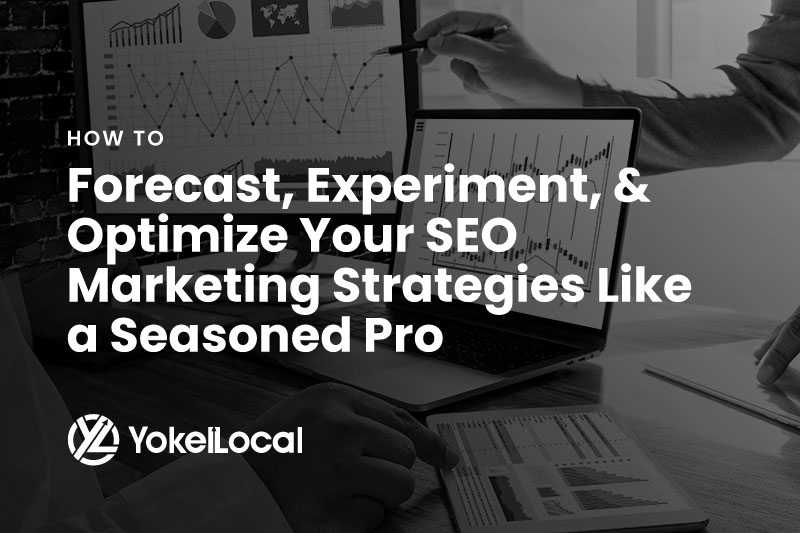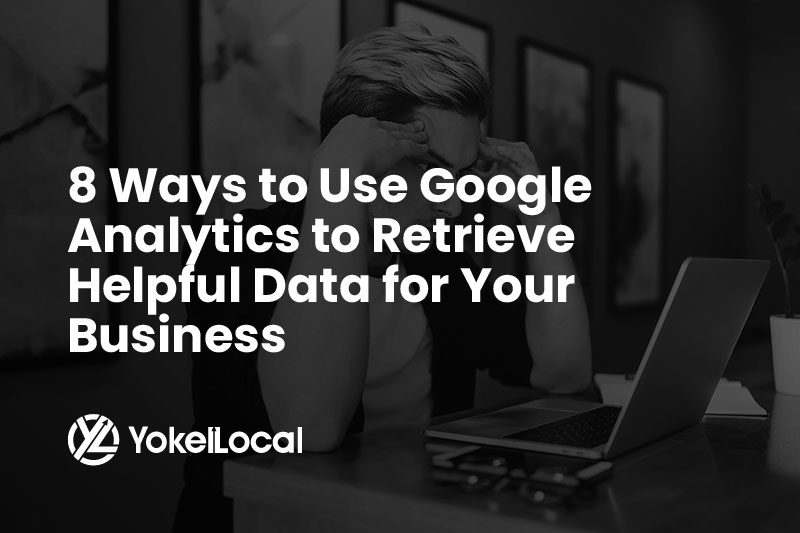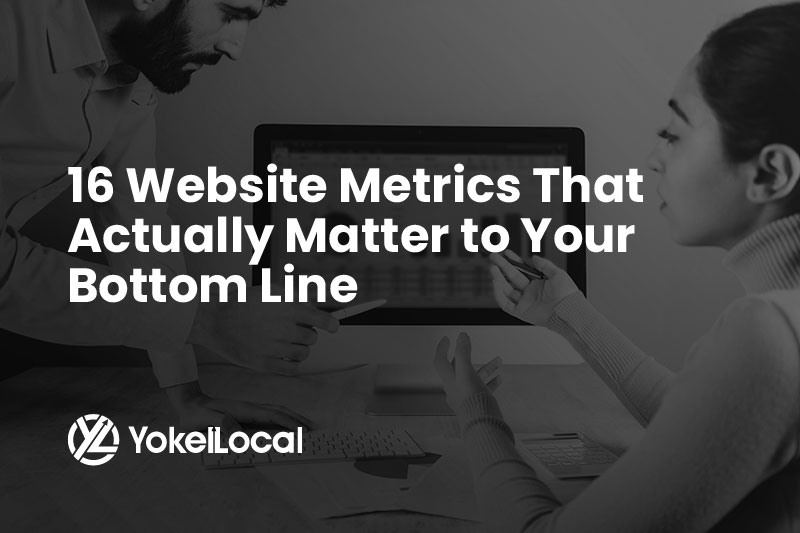Your business's website is its online, virtual storefront. It lets online users know that your business exists and displays the products and services your business offers. Even if you spent a lot of time and money to get a flashy website for your business up and running, is it delivering the results you want?
How Do You Know If a Website Is Successful?
A website with glitzy images and animations may look impressive, but if it doesn’t make visitors stay on the page, navigate to multiple pages on your website, make a purchase, or leave their contact information, is there a purpose to your website? The way to know if your website is successful is whether it achieves your business’ marketing and sales goals.
What Are the Most Important Metrics for a Website?
How do you know whether your website meets your sales and digital marketing goals? Here are some things to consider when assessing the success of one’s business website:
- Number of Goal Completions
- Conversion Rate
- Amount of Traffic
- Whether It's the Right Traffic
Website Metrics That Actually Matter
If you’re wondering what analytics and metrics to focus on? Here are some to look at:
1. Number of Goal Completions
What is your marketing goal for your website? Is it to get people to make an appointment with your sales team, subscribe to an email or newsletter list, or to purchase a product or service? A good way to measure the success of your website is to see how it affects the number of marketing goals you’ve set up. Design your website in a way to meet those few, specific goals. If they aren’t meeting your goals or contributing to completing others, you’ll want to revise your website.
2. Traffic Sources
Visitors from your website will come to it by different means. These are called traffic sources. The most common traffic sources include:
- Organic Search
- Referrals
- Social Media
- Paid Search
- Direct Traffic
- Other Campaigns
3. New/Returning Visitors
You always want a steady pipeline of new visitors to your website as some of them will convert into a sale and possibly a returning visitor. If however, your website has a high number of new website visitors and a low number of returning visitors, this can mean their experience on your website wasn’t great and they didn’t find the information they were looking for. Your website should provide visitors the information and assistance visitors are looking for while also delivering a pleasant website experience.
4. Geodata
Learning what country or region your website visitors are in when visiting your site can be helpful if you do business internationally. Additionally, small businesses should look into Google's local search result listings as people are more likely to do business with a company in their neighborhood. You can also use geodata to learn about the different keywords and phrases website visitors used in different locations.
5. Top Pages
What pages on your website see the most traffic? Are they the pages you want people to frequent to convert? If not, look at the content, links, and keywords of that page and how you can boost your SEO efforts for the pages you want people to go to.
6. Exit Pages
Conversely, what are the last pages people see before they leave your website? Knowing what pages are the last ones viewed can give you insights into your website visitors and what they are looking for. When you’re looking at your exit pages, also look at how long website visitors stay on each page of your website.
7. Conversion Rate
Are people making purchases, scheduling appointments, or subscribing to an email list after leaving your website? Your website is a valuable opportunity to generate leads and sales. The conversion rate assesses how well your website is doing its job in getting people to make the desired goal conversions.
8. Mobile/Desktop Conversion Rate
People spend more time browsing the Internet on the go on the small screens of smartphones. If your website isn’t compatible with a small screen, you’ll give website visitors a lackluster website experience. If your website content is cut off and involves scrolling, expect a high bounce rate. It is important to have a website that is compatible with both computers and smartphones.
9. Bounce Rate
You want your website to solve the problem your website visitors have. If website visitors aren’t able to immediately access and understand the content of your website or find what they are looking for on your website, they will quickly leave your website and go to another website. You want your website to have as low a bounce rate as possible. Bounce rate calculates the percentage of website visitors who immediately exit a website after visiting it.
10. Time on Page
When visitors to your website spend a lot of time on a page of your website and click through to deeper pages, chances are they find the content of your website valuable and useful. You want visitors to stay on your website as long as possible. Additionally, time on page is one of the many factors Google search engines use to rank websites in search results for keywords.
11. Page Speed
The Internet brings all the information people want to know at their fingertips immediately. Your website visitors will expect your website to load quickly. If you overload it with fancy animations or high-resolution images, your website will take a long time to load. A quickly loading website will have a lower bounce rate and a higher conversion rate.
12. Click-Through Rate
Whether it’s through organic or paid traffic, you want people to click through to your website. It’s when people see your webpage they will have a higher chance of converting. Ideally, you want website visitors to also click on internal links that go to other pages of your website. Be sure to have links to your contact page throughout the text on each page of your website.
13. Impressions
Impressions are views and are commonly used in online advertising. You need to get impressions to get website clicks. It is very easy to display a page from your website, a landing page, or an ad to an Internet user. It is much harder to get a user who has viewed the page to click on it and explore the rest of the website.
14. Positioning
Where your website appears in the search engine results pages will affect your website traffic. The goal you should have for your website is to get ranked, or positioned, as high as possible by search engines. Proper search engine optimization tactics are crucial in boosting your website’s positioning. Consider the optimization of HTML code, SEO copywriting, targeting the appropriate keywords, and having your website indexed by search engines.
15. Backlinks
Links are vital in helping your website gain organic reach and traffic. Links in your website content can be internal or external. Not all external links are good, however. Linking to an irrelevant outside website can negatively affect your website’s SEO. Search engines use the quality and quantity of backlinks to determine a website’s ranking in search results.
16. Authority
Internet users are more likely to visit, recommend, spend time on, and purchase on websites that have authority. Reputable websites will have valuable content people will find helpful. Google, with its search engine reputation on the line, seeks to display relevant, authoritative websites in its search engine results pages.
Link building is one of the best ways to build authority for your website. Try to link to influencers, companies, and websites that are respected in your industry. Many online SEO tools measure the authority of your website’s links.
It is not enough to simply have a website. Your website needs to be successful in generating traffic, leads, and sales. The aforementioned website metrics will help make your website more successful, which in turn will help your business’ bottom line.















